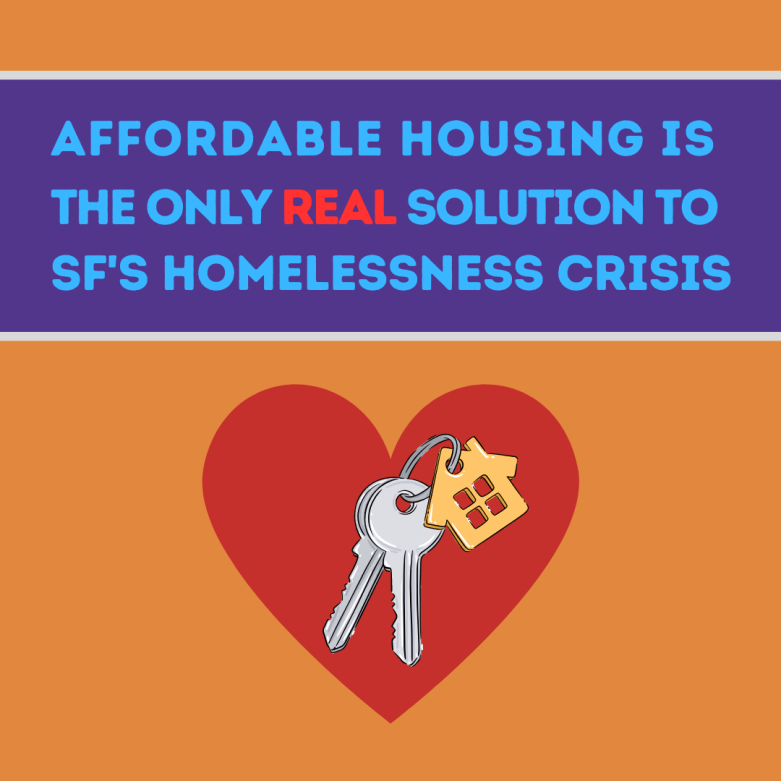After U.S. Supreme Court Homelessness Decision, San Francisco Cracks Down
Page Media

A month after the U.S. Supreme Court’s landmark 6-3 decision in Grants Pass v. Johnson that cities can cite and arrest people for sleeping outside when they have nowhere else to go, San Francisco ramped up aggressive enforcement against homeless encampments with predictably disastrous results.
Even though the city’s shelters are at capacity and the waiting list for a placement is long, police officers and Department of Public Works (DPW) staff swept through neighborhoods rousting unhoused individuals, detaining people, confiscating their belongings, and issuing tickets for illegal lodging. But the tents often returned within days, demonstrating the futility of wasting limited public resources on an endless cycle of displacement rather than investing in stable housing. And despite a 2016 voter-approved ordinance requiring San Francisco to offer shelter before clearing encampments, under a new policy city workers must tender a bus ticket first. But no one from the city is reaching out to family or friends to ensure that the person has a place to stay when they arrive.
"Instead of offering vulnerable people a pathway off the streets, San Francisco has doubled down on cruelty in a cynical attempt to make homelessness less visible," said John Do, senior attorney in the Racial and Economic Justice Program. "Punishing people for sleeping on the street or giving them a one-way ticket out of town won’t end the city’s homelessness crisis. San Francisco leaders must expand affordable housing and do more to prevent people from becoming homeless, like providing rental assistance and passing stronger eviction protection measures.”
In Coalition on Homelessness v. City of San Francisco, the ACLU of Northern California and the Lawyers’ Committee for Civil Rights of the San Francisco Bay Area presented evidence that the city routinely violated unhoused peoples’ Fourth Amendment rights by seizing and destroying their belongings—including tents, sleeping bags, medication, IDs, phones, and other items they need to survive on the street. Under the city’s “bag and tag” policy, DPW workers must collect unattended property that has not been abandoned and store the items for 90 days.
In granting our request in December 2022 for a preliminary injunction barring the city from violating the policy, the federal district court found that the plaintiffs were likely to succeed in showing that San Francisco had a pattern of trashing personal property.
When the city persisted, in summer 2023 we filed a motion to enforce the injunction. Shortly after a news website published shocking video of city workers ripping a tent away from an unhoused man during an encampment operation in August, the court granted our motion and ordered San Francisco to develop and document comprehensive training on the “bag and tag” policy for DPW staff.
Under the injunction, the city can enforce all health, accessibility, and public safety laws to address homeless encampments when necessary, including for routine street cleanings. The Coalition case is scheduled to go to trial in 2025.
The city has been destroying property all along, but it’s happening more often since San Francisco increased the frequency of encampment sweeps, and unhoused residents are feeling under attack.
Although we hope that with additional court oversight of the new training the city will end its unlawful practice of taking peoples’ possessions, we are disturbed by the decision to enforce criminal penalties. Citing and arresting people simply for being homeless will push them into the criminal legal system and have a disproportionate impact on Black and Latino residents who make up 25 percent and 34 percent, respectively, of San Francisco’s unhoused population. Even if they ultimately prevail in court, the damage will be done. An arrest, warrant, criminal record, or unpaid court fines can trap people in homelessness by making it more difficult for them to secure public benefits, employment, and permanent housing.
Since we filed the Coalition lawsuit in 2022, the city has reopened the shelter waitlist, and the most recent data shows the number of people living on the street in San Francisco has decreased. However, homelessness has risen overall because housing remains expensive. Instead of tackling housing affordability and other root causes of homelessness, city leaders have responded to the Supreme Court’s decision by further punishing residents who have no option for shelter other than a tent.
Lisa P. White is a communications strategist at the ACLU of Northern California.
